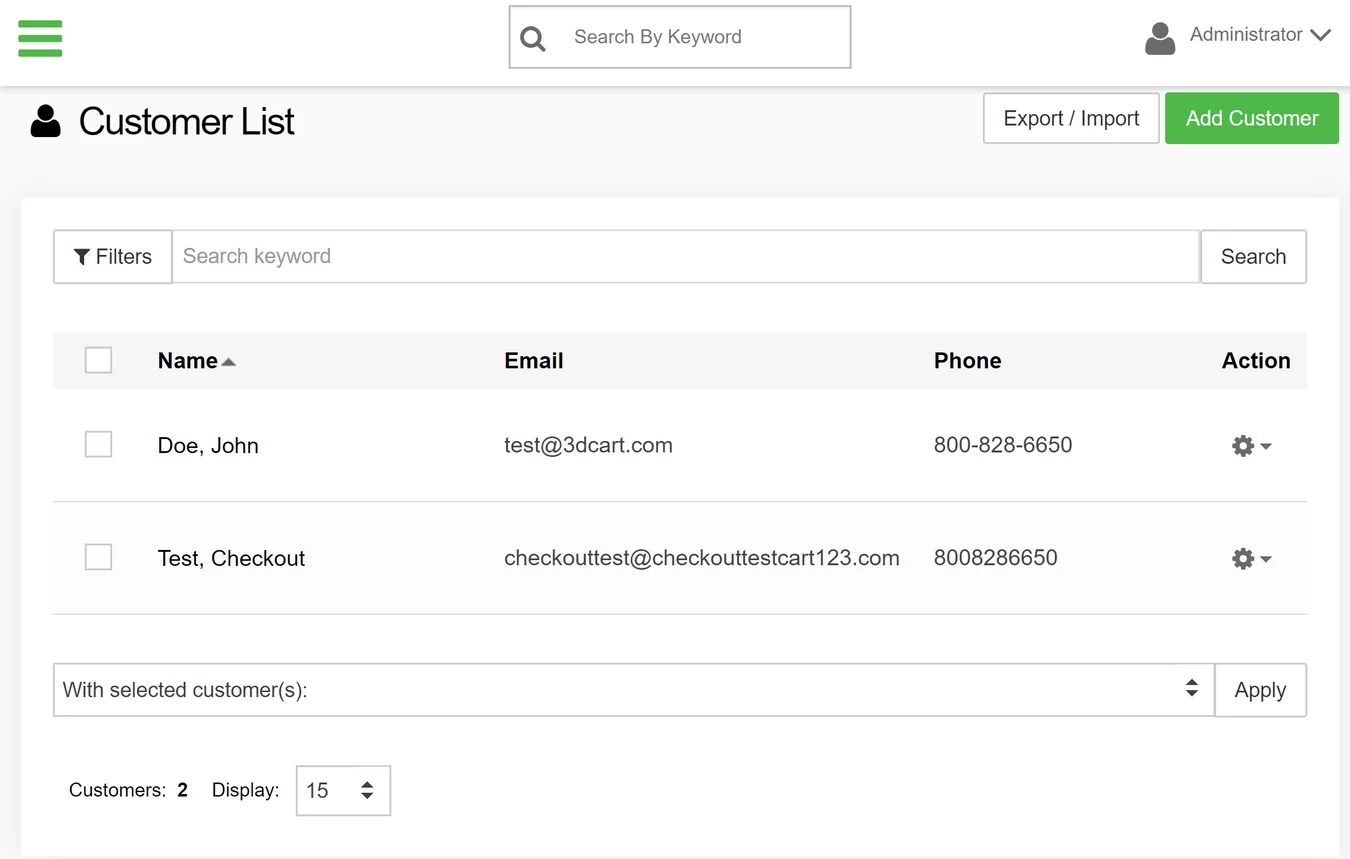Business
Boost Your Sales by 30% with Effective CRM Software Implementation

(CTN News) – In today’s highly competitive business landscape, companies constantly search for ways to boost sales and gain a competitive edge. One powerful tool that can help achieve this is Customer Relationship Management (CRM) software.
By implementing CRM software effectively, businesses can enhance their sales processes, improve customer relationships, and ultimately increase sales by up to 30%. This article will explore the steps and strategies you can follow to leverage CRM software for sales success.
Introduction
In the digital era, customer expectations rapidly evolve, and businesses must adapt to meet their needs effectively. CRM software provides a comprehensive solution for managing customer interactions, organizing sales data, and automating various sales processes.
By implementing CRM software, businesses can gain valuable customer insights, make data-driven decisions, and develop personalized sales strategies.
Understanding CRM Software
CRM software is a technology solution enabling businesses to manage customer relationships effectively. It acts as a centralized hub where all customer-related information, including contact details, purchase history, communication history, and preferences, can be stored and accessed by sales teams.
This gives sales professionals a holistic view of their customers, enabling them to provide personalized experiences and build stronger relationships.
Benefits of CRM Software
Implementing CRM software offers numerous benefits for businesses aiming to boost their sales performance. Firstly, it enhances efficiency by automating repetitive tasks, such as data entry, scheduling follow-ups, and generating reports.
This automation frees up valuable time for sales teams to focus on building relationships and closing deals. CRM software also improves team members’ collaboration by providing a centralized platform for sharing information, tracking progress, and aligning efforts.
Implementing CRM Software for Sales
Businesses should follow a structured approach to effectively implement CRM software and maximize its impact on sales. Here are the key steps involved:
Step 1: Assessing your Sales Processes
Before selecting and implementing CRM software, evaluating your current sales processes and identifying areas that can be improved is crucial. This assessment will help you understand your specific requirements and choose the CRM solution that aligns with your business goals.
Step 2: Choosing the Right CRM Software
Once you have assessed your sales processes, it’s time to choose the CRM software that best fits your business needs. Consider factors such as scalability, customization options, integration capabilities, ease of use, and cost.
Look for a CRM solution that aligns with your industry requirements and offers effective features to support your sales team.
Step 3: Customizing CRM for Your Sales Team
After selecting the CRM software, it’s essential to customize it to suit your sales team’s unique needs. Configure the system to match your sales processes, terminology, and workflows. This customization ensures your team can seamlessly adapt to the new software and maximize its potential.
Step 4: Training and Onboarding
Proper training and onboarding are crucial for successful CRM implementation. Provide comprehensive training sessions to your sales team to familiarize them with the CRM software’s features and functionalities. Offer ongoing support and resources to address any questions or concerns that may arise during the onboarding process.
Step 5: Integrating CRM with Other Systems
To harness the full power of your CRM software, integrate it with other business systems such as marketing automation platforms, customer support tools, and ERP systems. This integration enables seamless data flow and ensures that all customer touchpoints are captured within the CRM system, providing a comprehensive view of each customer’s journey.
Leveraging CRM Software for Sales Success
Once your CRM software is implemented, it’s time to leverage its capabilities to drive sales success. Here are some key strategies to consider:
Improving Lead Management
CRM software helps optimize lead management by capturing and organizing leads effectively. Utilize lead scoring and lead nurturing capabilities to prioritize and engage with high-potential prospects. You can increase conversion rates and drive more sales by effectively managing leads.
Streamlining Sales Pipeline
With CRM software, you can create a visual representation of your sales pipeline, allowing you to track deals at each stage of the sales process. Monitor progress, identify bottlenecks, and allocate resources accordingly. Streamlining the sales pipeline ensures smoother sales operations and increases the likelihood of closing deals.
Enhancing Customer Engagement
CRM software empowers sales teams to deliver personalized experiences to customers. Leverage customer data stored in the CRM system to understand customer preferences, purchase history, and communication preferences. Use this information to tailor your sales approach, provide relevant recommendations, and strengthen customer relationships.
Personalizing Sales Approach
CRM software allows sales professionals to access comprehensive customer profiles that include past interactions, preferences, and buying behavior. Leverage this information to personalize sales pitches, recommendations, and follow-ups. A personalized approach creates a stronger customer connection and increases the likelihood of closing deals.
Monitoring Sales Performance
CRM software provides real-time visibility into sales performance through customizable dashboards and reports. Monitor key sales metrics, such as the revenue generated, conversion rates, and individual sales rep performance. Identify areas of improvement and take proactive measures to optimize sales performance.
Maximizing ROI with CRM Software
To maximize your return on investment (ROI) with CRM software, consider the following strategies:
Analyzing Sales Data
Leverage the analytical capabilities of CRM software to gain valuable insights from your sales data. Analyze trends, identify patterns, and make data-driven decisions. This analysis lets you optimize your sales strategies and focus on high-yield opportunities.
Identifying Trends and Patterns
CRM software lets you identify trends and patterns in customer behavior, buying cycles, and market dynamics. Use this information to anticipate customer needs, align your sales efforts accordingly, and stay ahead of the competition.
Forecasting and Predictive Analytics
Utilize CRM software’s forecasting and predictive analytics capabilities to anticipate future sales trends and customer behavior. By analyzing historical data and applying advanced algorithms, you can make accurate sales forecasts, identify potential upselling or cross-selling opportunities, and allocate resources effectively.
Overcoming Challenges in CRM Implementation Implementing CRM software can come with its challenges. Here are some common challenges and strategies to overcome them:
Resistance to Change
Resistance to change is natural when introducing new software. To overcome this challenge, involve key stakeholders in the decision-making process, communicate the benefits of CRM software, and provide ongoing support and training to address any concerns.
User Adoption Issues
Ensure proper user adoption of CRM software by providing comprehensive training, user-friendly interfaces, and ongoing support. Encourage feedback from the sales team and continuously improve the system based on their input.
Data Management and Privacy Concerns
Data management and privacy are critical considerations when implementing CRM software. Implement robust data security measures, ensure compliance with data protection regulations, and communicate transparently with customers about how their data is being used and protected.
Conclusion
Implementing CRM software can significantly increase sales by up to 30%. By following a structured approach, customizing the software to your needs, and leveraging its capabilities, you can streamline sales processes, enhance customer engagement, and maximize ROI. Overcoming implementation challenges and ensuring user adoption is key to success with CRM software.



:max_bytes(150000):strip_icc()/Primary-Image-best-crm-software-5116883-fca9e7b675934c9aab40e9e40854f2d8.jpg)





























